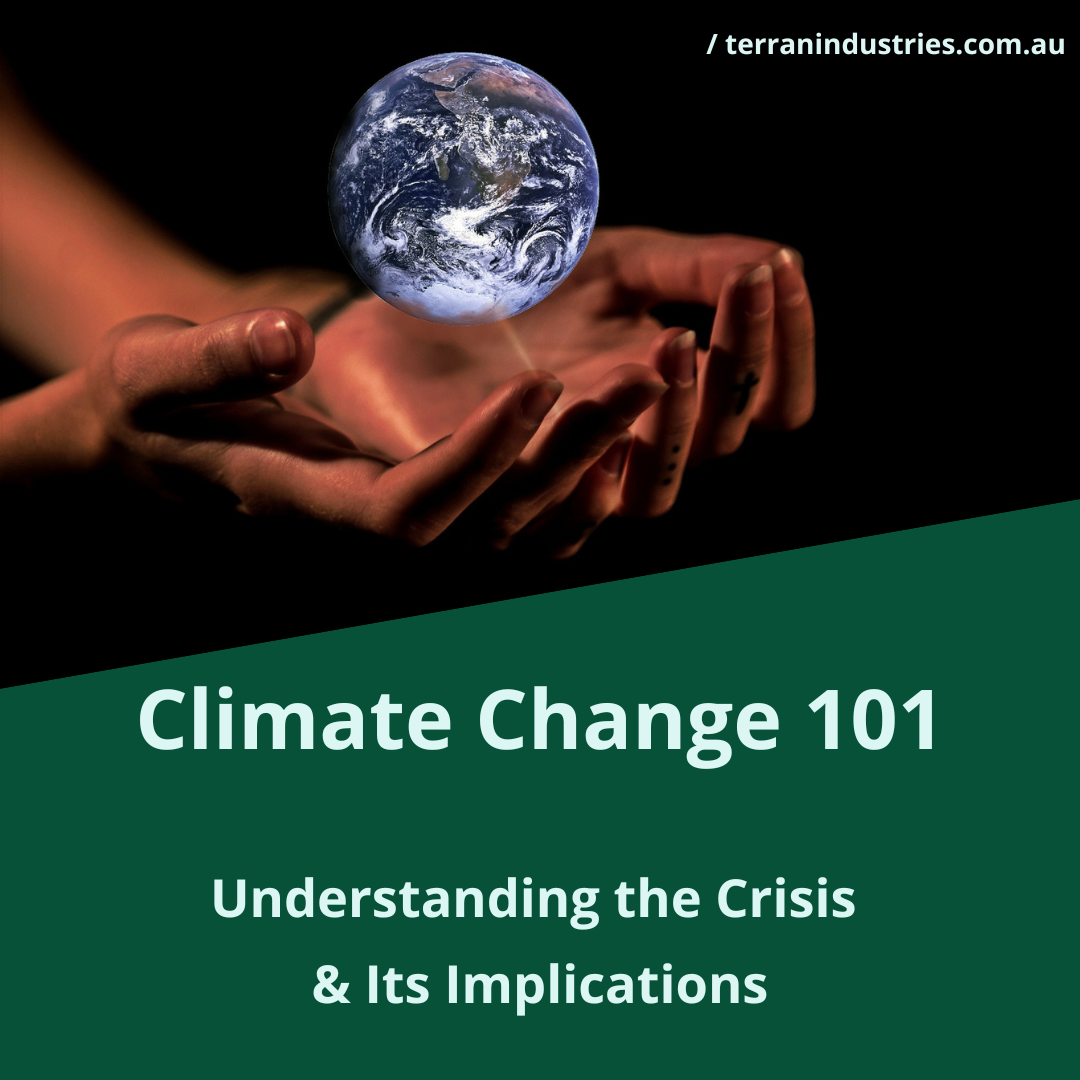Climate ChangeEnvironmentClimate Change 101: The Crisis and Its Impact

Climate change is one of the most pressing issues of our time, with far-reaching consequences for the planet, ecosystems, economies, and human societies.
This article aims to provide a comprehensive overview of what climate change is, its effects on the planet, its economic implications, and the actions needed to mitigate its impacts.
What is Climate Change?
Climate change refers to long-term shifts in temperature, precipitation patterns, and other climatic factors that alter the Earth's natural balance.
While the Earth's climate has always varied, the current changes are primarily driven by human activities, such as the burning of fossil fuels, deforestation, and industrial processes, which release greenhouse gases (GHGs) like carbon dioxide (CO2) and methane (CH4) into the atmosphere.
These gases trap heat, leading to a warming effect known as the greenhouse effect.
Effects on the Planet
Rising Temperatures
One of the most evident consequences of climate change is rising global temperatures. This warming trend is causing glaciers and polar ice caps to melt, leading to rising sea levels, which threaten coastal communities and ecosystems.
Extreme Weather Events
Climate change is intensifying extreme weather events such as hurricanes, droughts, wildfires, floods, and heatwaves. These events can result in loss of life, property damage, and disruptions to food and water supplies.
Biodiversity Loss
Changes in temperature and weather patterns are disrupting ecosystems, leading to the extinction of plant and animal species. This loss of biodiversity can have cascading effects on ecosystem services, such as pollination, water purification, and carbon sequestration.
Prime Causes of Climate Change
Fossil Fuel Burning
The burning of fossil fuels for energy production is the largest contributor to GHG emissions. Coal, oil, and natural gas power plants as well as the use of these products, release significant amounts of CO2 into the atmosphere, driving global warming.
Deforestation
Deforestation, primarily for agriculture, logging, and urban development, reduces the Earth's capacity to absorb CO2 and contributes to GHG emissions. Forests act as carbon sinks, capturing and storing CO2, so their destruction exacerbates the climate crisis. Also, the loss of shade from trees and other plants allows the ground to heat up much more, thus adding to the higher temperatures and drying the land much more than if the land was shaded.
Industrial Processes
Industrial activities such as manufacturing, cement production, and chemical processes release GHGs like CO2, methane, and nitrous oxide (N2O) into the atmosphere, further contributing to global warming.
Economic Implications
Current Impact
Climate change is already having substantial economic impacts, including:
Infrastructure Damage
Extreme weather events can cause billions of dollars in damages to infrastructure such as roads, bridges, and buildings.
Agricultural Losses
Changes in temperature and precipitation patterns affect crop yields, leading to food shortages and price volatility.
Healthcare Costs
Rising temperatures and changing weather patterns increase healthcare costs due to heat-related illnesses, vector-borne diseases, and respiratory ailments.
Future Outlook
If left unchecked, climate change could lead to:
Economic Instability
Disruptions to global supply chains, financial markets, and trade could result in economic downturns and recessions.
Migration and Displacement
Climate-induced disasters could force millions of people to attempt to migrate, heading for countries that are already overpopulated or suffering the effects of climate change as well. This leads to significant social and political instability.
Resource Scarcity
Declining freshwater supplies, agricultural productivity, and natural resources could lead to conflicts over access to essential resources.
Reversing the Effects
Mitigation Strategies
To mitigate climate change, we must:
Transition to Renewable Energy
Shift from fossil fuels to renewable energy sources such as solar, wind, and hydropower to reduce GHG emissions.
Promote Sustainable Practices
Implement sustainable agriculture, forestry, and land-use practices to enhance carbon sequestration and reduce deforestation.
Increase Energy Efficiency
Improve energy efficiency in buildings, transportation, and industries to reduce energy consumption and GHG emissions.
Adaptation Measures
In addition to mitigation, we must:
Build Resilient Infrastructure
Develop infrastructure that can withstand extreme weather events and sea-level rise.
Enhance Climate Resilience
Invest in early warning systems, disaster preparedness, and community resilience to reduce vulnerability to climate risks.
Support Vulnerable Communities
Provide financial and technical assistance to vulnerable communities to adapt to climate change impacts and build adaptive capacities.
Global Cooperation
Addressing climate change requires global cooperation, policy coordination, and collective action.
International agreements such as the Paris Agreement aim to limit global warming to well below 2 degrees Celsius above pre-industrial levels and pursue efforts to limit the temperature increase to 1.5 degrees Celsius.
Conclusion
Climate change is a complex and multifaceted issue with profound implications for the planet, economies, and societies.
By understanding its causes, effects, and economic impacts, we can develop strategies and solutions to mitigate its effects, adapt to its consequences, and build a more sustainable and resilient future for all.
Taking decisive action now is crucial to averting the worst impacts of climate change and preserving the health, prosperity, and well-being of current and future generations.

Evannah Jayne
Founder & CEO
A passion for sustainability and a desire to change the world, Evannah seeks to raise awareness of the important issues surrounding our planet today.
